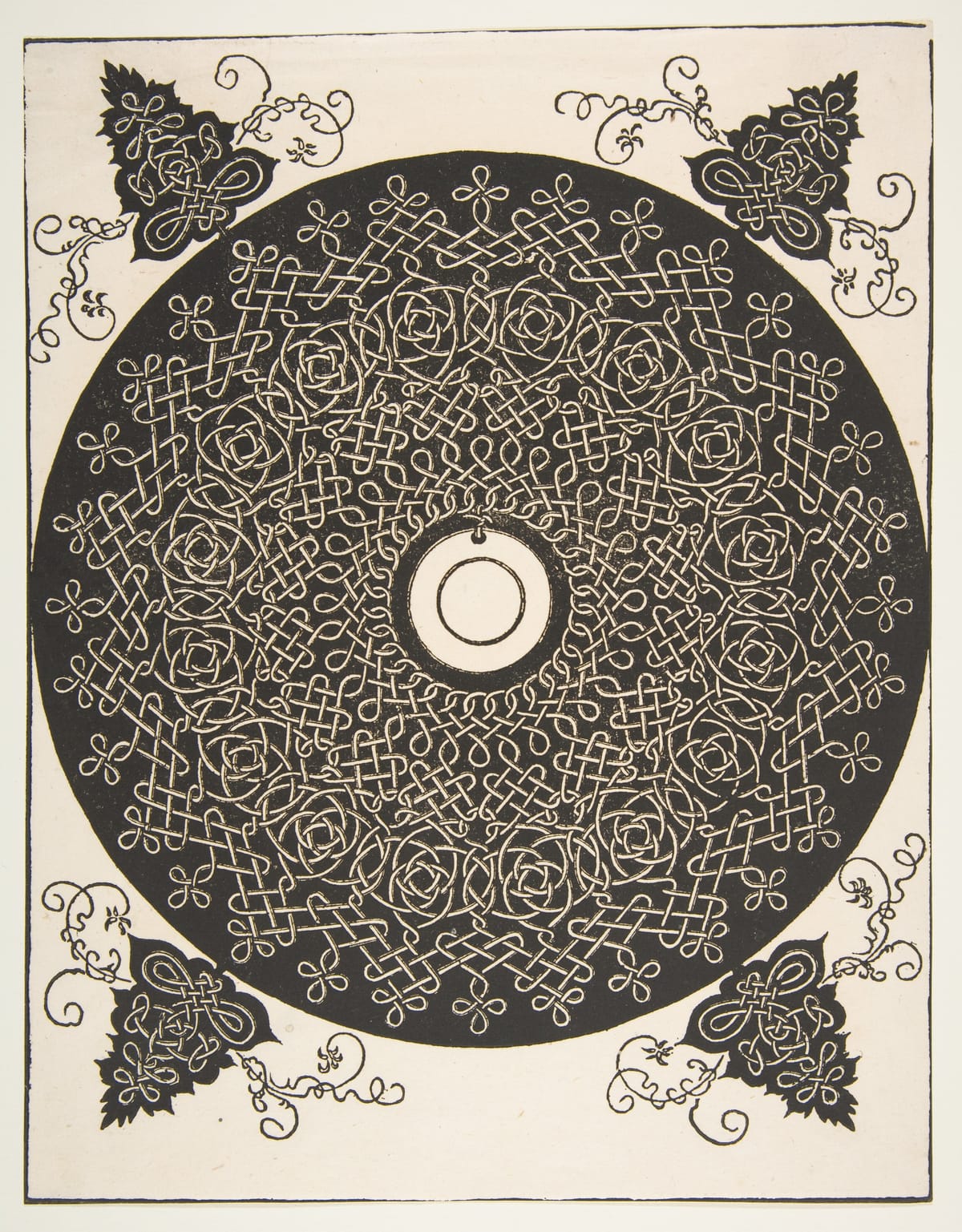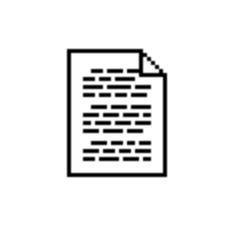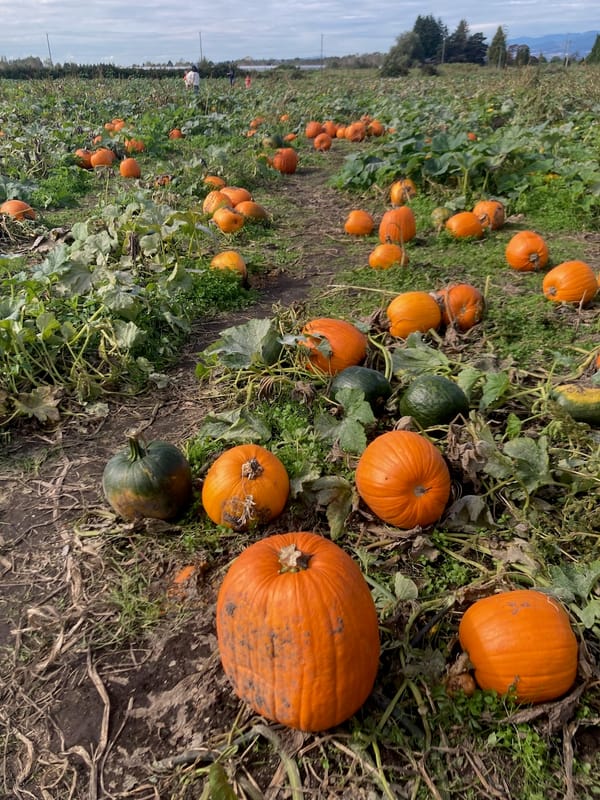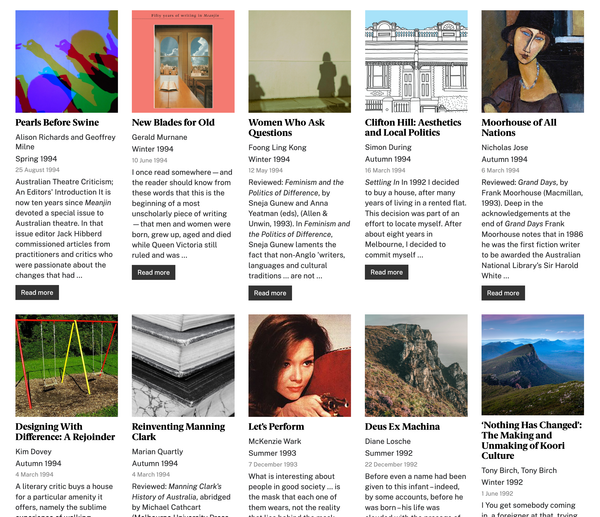Back from the beyond
Two elections, Cancel culture or bust, Art to put you to sleep

After a rush of excitement moving this newsletter from Substack to Ghost, it has been several months between missives. (If you are receiving this, incidentally, it is because you were on my Infra Dig Substack list; I imported the whole list over here and eventually I'll close the whole stack down. I wrote a bit about leaving Substack here.) I didn't lose my Ghost login details, life hasn't been much busier than usual, and I didn't break a limb. I've continued to do all the usual and required stuff, including vote at the consulate in the Australian federal election, and watch the campaign corflutes go up and down here in Vancouver.
I'm lucky, I know, because the disruptions wrought by Trump to my daily life are, for now, minimal. Some items in the grocery stores are more expensive, Canadian flags are flying all over the place, the exchange rate has gone to shit. I've put plans to cross the border on hold indefinitely. But the blizzard of vile Executive Orders, the horror of Gaza and ever-intensifying bureaucratic depravity has produced in me a kind of psychic fog, and I've struggled to concentrate. If you are expecting an email from me, it's coming.
This newsletter may return to regular emissions, or it may not. I mean, there's plenty to write about. The further enshittification of cultural journalism via AI-generated summer reading lists, as if they weren't bad enough. The question of whether the great novels of the future will be published on Substack. (Concise answer: no.) The normalisation of reactionary literary criticism on Substack. What the termination of NEA grant funding to so many independent literary publishers in the US might mean for readers and writers elsewhere in the Anglosphere. Plenty to write about...
Like any person with a heartbeat, I'm relieved that Peter Dutton was not elected Prime Minister of Australia earlier this month, relieved that Pierre Poilievre is not Prime Minister of Canada. I'm not exultant, though, either at the installation of two cautious centrists who appear reluctant at best to put the brakes on the fossil fuel economy, or at the way fear of Trumpism dulled the appeal of genuine progressive candidates, such as those offered by the Australian Greens and the NDP here. Anyone looks good compared to Trump, whether on immigration policy or arts funding, but it's a low bar.
Recently I listened to a podcast hosted by a reasonably high profile Australian cultural bod. I usually avoid such media in the name of self-care, however in this instance, a friend, whom I won't embarrass by naming, was a guest, and I wanted to hear them talk about their work. The host divulged that, in these times, reading seemed to them something of an indulgence. I don't think this was because they were devoting their waking hours to political protest or fundraising for children in Gaza, rather, it was the expression of a persistent and familiar framing of art as existing in a realm cordoned off from real politics, and indeed from real life. This is a vision of art that is good if it puts you to sleep, of art that doesn't keep you awake or send you out onto a picket line. It is absolutely the kind of art that Australian and federal governments would like to see produced, all the better if there is some lucrative IP involved. It's a problem when even people in the industry frame literature as a tasty little treat. Small wonder arts and culture fare so badly at a p0licy level in Australia if sector leaders see reading as an indulgence rather than a part of life.
This preference for a well-behaved cultural sector goes some way to accounting for the disgraceful treatment of Khaled Sabsabi and Michael Dagostino by Creative Australia, the Murdoch Press and the federal government. Ben Eltham and I wrote about this debacle for Crikey back in February. What's happened since then? The Albanese government has been re-elected. Tony Burke remains Minister for the Arts. Adrian Colette is still the CEO of Creative Australia – and it seems unlikely that Australia will send any artists to the Venice Biennale next year. I see the Chair of the Creative Australia board, Robert Morgan, has just retired - a very dignified way to leave the role, and certainly the announcement of that departure by Tony Burke suggested no ignominious residue for Morgan. Sabsabi and Dagostino have been humiliated, confidence in Creative Australia's peer review process has been shattered, and artists and organisations funded by Creative Australia have no guarantee that either Creative Australia or the Minister for the Arts will support them if they're attached by some wingnut on the Murdoch payroll.
Dee Jefferson wrote a long reported piece for Art Review about the impact of this shitshow and the way cancel culture actually works in the Australian cultural world. And then a few days later, what happens? Ren Wyld's black&write! fellowship gets cancelled at the last minute on the basis of deleted tweets. I'm not surprised that a state LNP government would immediately cave to pressure from The Australian, especially as other Queensland artists have recently been punished for speaking out on Gaza. They're just playing from the same songbook as Tony Burke and Adrian Colette did with the Biennale. I'm staggered though, that the senior management of the State Library of Queensland would fold so quickly, because what is at stake is confidence in a program of awards and programs for First Nations writers that has been decades in the making. I spoke to Ellen van Neerven back in 2015 about their career; that interview spotlights the vital, careful work that has been done at SLQ to build an infrastructure for First Nations writing that simply did not exist previously. How will that trust be rebuilt? Of course this is an insult and injury carried first by Ren Wyld – but the damage to Australian literature is profound. All power to those judges of the Queensland Literary Awards who promptly quit.
We seem to be at a juncture in Australian arts funding where any artist who has been outspoken about Gaza, particularly if they are Arab or First Nations, is vulnerable to attack by News Limited and conservative politicians. If arts funding bodies and public institutions are really going to pull grants and prizes when The Australian complaints about recipients' political speech, perhaps they should build disclosure statements into their grant applications to make things easier for everyone. (Have you posted on social media about Gaza? If Yes, you may not be eligible for grant funding.) Alternatively, funders and cultural institutions could stand up for artists and freedom of artistic and political expression and push back against this unconscionable pressure.
For ABR, I wrote about The Cancel Culture Panic by Adrian Daub, a really terrific analysis of the origins of the cancel culture panic, and its international spread. A very useful book for understanding the trope of the woke mind virus and related species - and highly relevant to the cancellation of Khaled Sabsabi and Ren Wyld.
Other reviews: For Guardian Australia, I wrote about Signs of Damage, Diana Reid's third novel, as well as reviewing a cracking debut novel, The Passenger Seat by Vijay Khurana.
Also for Crikey, I talked to Felicity Castagna, Yumna Kassab, Cher Tan and Jodi McAlister and wrote about Meta's plundering of the LibGen database to train its AI tools. I ring this bell often, but as repellent as Meta's copyright infringements are, there are more urgent policy issues for Australian governments to address when it comes to protecting Australian writers. Such as? Restoring confidence in peer review assessment processes across the board, safeguarding freedom of artistic expression, and liveable incomes for artists.
And finally, I've got a piece in the most recent Griffith Review about bad reviews, 'A Half-Century of Hatchet Jobs'. Paywalled, but lots of other good stuff in this edition.


